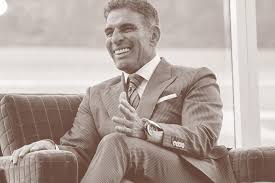An example of why strong teams succeed and thrive!
In 2013, Directional Aviation Capital bought Flexjet from Bombardier for just $185 million plus some new aircraft orders.
I laughed at the price, which was essentially the savage value of the aircraft, about $2.5M each. Everything else, goodwill, brand, customers base, came for FREE!
Yesterday, Directional announced new investments from LVMH and KSL Capital, valuing Flexjet at more than $4 billion.
Yes, a rising tide lifts many boats, and Flexjet has certainly benefitted from renewed interest in fractional ownership. But there is a whole lot more to this story including leadership, strategy, and timing.
Turns out, the death notice was premature.
Directional’s founder, Kenn Ricci, saw opportunity where others saw crisis. Bombardier needed cash. This came at time when one industry executive bluntly told me “Fractional aircraft are dead!“
So what really made the difference?
- Hands-on leadership. Kenn Ricci is more than a figurehead. He’s actively involved and highly visible. In an industry full “start-ups,” Ricci’s presence is a competitive edge, and he KNOWS the business. Listen to him speak and any doubt is quickly erased.
- A long-tenured, invested team. Directional’s leadership, Mike Rossi, Mike Silvestro, Andrew Collins, Bob Sullivan, and others, have been together for 20+ years. These folks are all invested in the business, and they know how each other thinks about it.
- Talent mattehttps://craigpicken.com/executive-search/rs. Flexjet has been relentless in hiring top-tier leaders across every part of the business. And let’s not forget: their pilots voted to decertify the union.
- An entrepreneurial mindset. The team is fearless.
Flexjet’s success didn’t happen by luck. It is an example of why strong teams both succeed and thrive.



